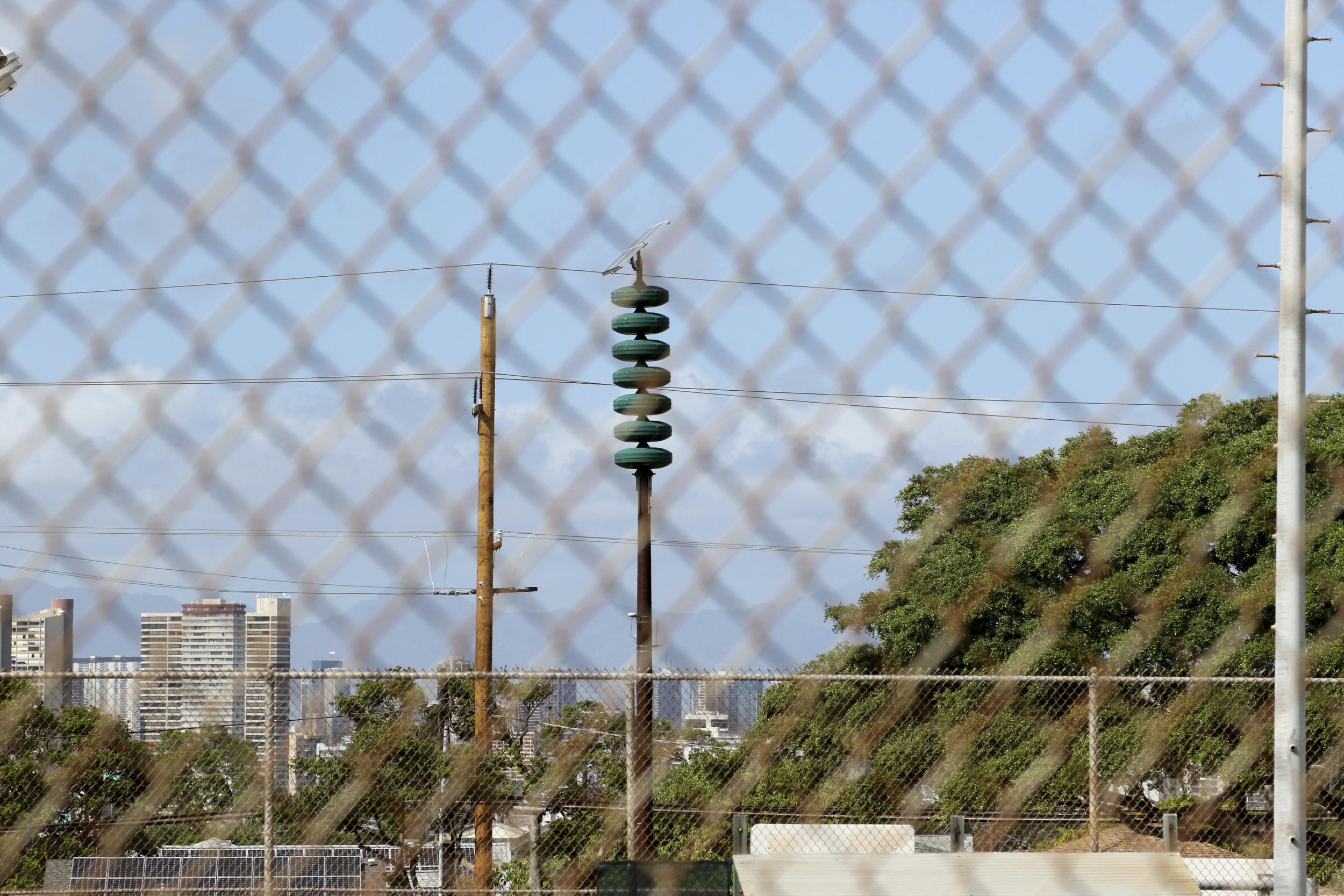Hawaii sounds nuclear warning sirens for first time since 1980s
Warning would give people 20 minutes to take shelter ahead of imminent missile strike

Hawaii officials were checking if sirens intended to alert tourists and residents to a possible nuclear attack from North Korea malfunctioned or were not loud enough Friday after the first test of the warning system since the end of the Cold War was barely heard at one of the state's most popular beaches.
The sirens largely were drowned out by crashing waves and wind along Waikiki, the famous stretch of beach in the shadow of the Diamond Head volcano. Beachgoers hardly noticed the test, which sounded like a distant siren. The warning would give people 20 minutes to take shelter ahead of an imminent missile strike.
"I was out in the ocean playing around, and I heard this siren," said tourist Tom Passmore from Calgary, Canada, adding that he didn't think much of it.
"I think it's a good idea," he said of the test, "but judging by everyone's reaction around here, nobody moved."
Vern Miyagi, administrator of the Hawaii Emergency Management Agency, said early reports indicate the test went well, but officials could get complaints later. They will document any they receive and investigate if there were any glitches — a process they carry out after every monthly test of a siren for natural disasters.
There are 385 warning sirens throughout the islands. How well someone hears them depends on how close they are to a device, Miyagi said.
Hawaii officials said it is the first state to bring back the Cold War-era attack warning system. The wailing siren sounded for a minute after the usual testing of the steady alert for tsunamis and other events that residents are used to hearing.
The possibility of a strike is remote but it's important to be prepared, Gov. David Ige said this week. The test will ensure the public knows what to do in case of an impending attack, he said.
The state delayed the test for a month to let people know it would be happening, Miyagi said. Hawaii turned to public service announcements on TV and radio, town hall meetings, information on agency websites and media stories.
Honolulu resident Mark Valdez was taking a walk in Ala Moana Beach Park, about a mile away from Waikiki, during the test. He said he's heard some information about it but that he "wouldn't know what to do" in an emergency.
Also in the park, Thomas Hanes and his wife sat in hammocks as the sirens sounded.
"We heard it quite clearly, and it was effective," he said. "I just didn't know what it was for."
The Los Angeles residents, who stopped in Hawaii on their way to Australia, had not heard anything about the test.
"I assumed it was a test," Hanes said. "I thought if it is a nuclear missile attack, there's nothing I can do about it, so I'm just going to relax."
It comes the same week North Korea fired a powerful nuclear-capable intercontinental ballistic missile it calls the Hwasong-15, leading analysts to conclude the nation has made a jump in its missile capability. The weapon would have a range of more than 8,100 miles (13,000 kilometres), easily reaching the U.S. mainland.
Hawaii is one of the closest states to North Korea, and its large military presence could make it more of a target. The island of Oahu is home to U.S. Pacific Command, the military's headquarters for the Asia-Pacific region. It also hosts dozens of Navy ships at Pearl Harbor and is a key base for the Air Force, Army and Marine Corps.
Miyagi has previously said a nuclear strike on Hawaii would result in thousands of deaths, thermal radiation, severe damage to critical infrastructure and other chaos.
The tests will continue on the first business day of every month.
Karen Lindsay and Carolyn Fujioka of Honolulu kept eating their lunch in Ala Moana Beach Park during the test. They thought that if it were a real emergency, there would not be time to do much.
"It's great to alert us, I guess to say our last goodbyes, which is basically all you can do," Lindsay said. "You just hope it never comes to that."
Associated Press
Join our commenting forum
Join thought-provoking conversations, follow other Independent readers and see their replies
Comments
Bookmark popover
Removed from bookmarks